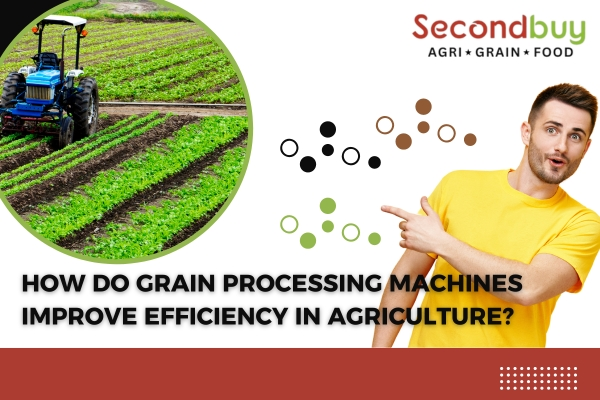How Do Grain Processing Machines Improve Efficiency in Agriculture?
Grain processing machines play a pivotal role in modern agriculture, revolutionizing the way grains are harvested, cleaned, sorted, and stored. From small-scale farms to large commercial operations, these machines have become indispensable tools for improving efficiency and productivity in the agricultural sector. If you're considering to buy grain processing machines, understanding how they enhance efficiency can help you make informed decisions. Let's explore the various ways in which grain processing machines contribute to agricultural efficiency.
Increased Productivity
Farm machines make hard work easier. They're great for dealing with a lot of grain quickly. This means farmers can do more and satisfy folks who want to buy their grains faster!
Time Savings
Manual grain processing tasks, such as threshing and winnowing, are time-consuming and labor-intensive. Grain processing machines significantly reduce the time required to perform these tasks, enabling farmers to allocate their time and resources more efficiently to other farm activities.
Improved Grain Quality
Grain processing machines ensure consistent quality by removing impurities, debris, and damaged grains during processing. This results in higher-quality grains that fetch better prices in the market, enhancing the overall profitability of agricultural operations.
Reduction in Losses
Grain processing machines minimize losses by effectively separating grains from chaff, husks, and other unwanted materials. By reducing post-harvest losses, farmers can maximize their yield and minimize waste, leading to higher profits and improved food security.
Enhanced Storage Efficiency
Properly processed grains are easier to store and transport. Grain processing machines clean and dry grains, removing excess moisture and reducing the risk of spoilage during storage. This enhances the efficiency of grain storage facilities and helps farmers preserve their harvests for longer periods.
Flexibility and Versatility
Modern grain processing machines are designed to handle various types of grains, including wheat, rice, maize, and barley. This versatility allows farmers to process multiple crops using the same equipment, optimizing resource utilization and increasing operational flexibility.
Sustainable Practices
Grain processing machines contribute to sustainable agriculture by reducing the environmental impact of traditional processing methods. By minimizing the need for manual labor and reducing energy consumption, these machines help farmers adopt more eco-friendly practices and reduce their carbon footprint.
Access to Markets
Efficient grain processing enables farmers to access wider markets and capitalize on diverse opportunities. Processed grains that meet quality standards are in high demand both domestically and internationally, opening up new avenues for sales and increasing farmers' earning potential.
Conclusion
Grain processing machines play a crucial role in improving efficiency and productivity in agriculture. By automating labor-intensive tasks, enhancing grain quality, reducing losses, and facilitating access to markets, these machines empower farmers to optimize their operations and achieve sustainable growth. If you're looking to buy grain processing machines, consider the benefits they offer in terms of efficiency, profitability, and sustainability, and invest in equipment that meets your specific needs and requirements.

